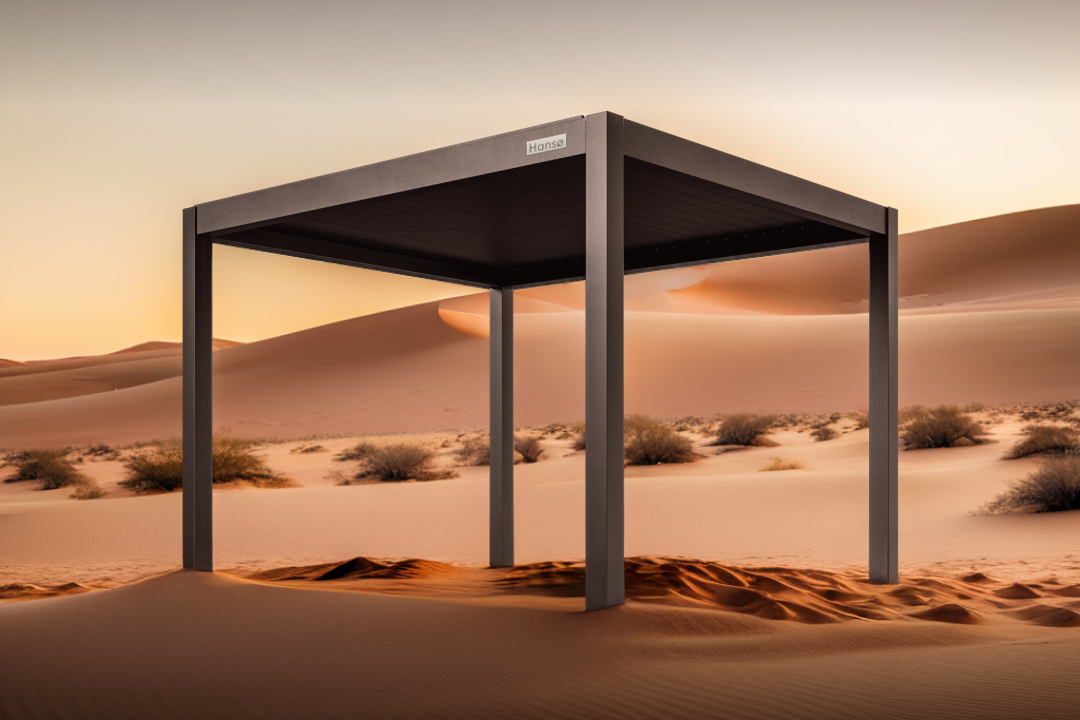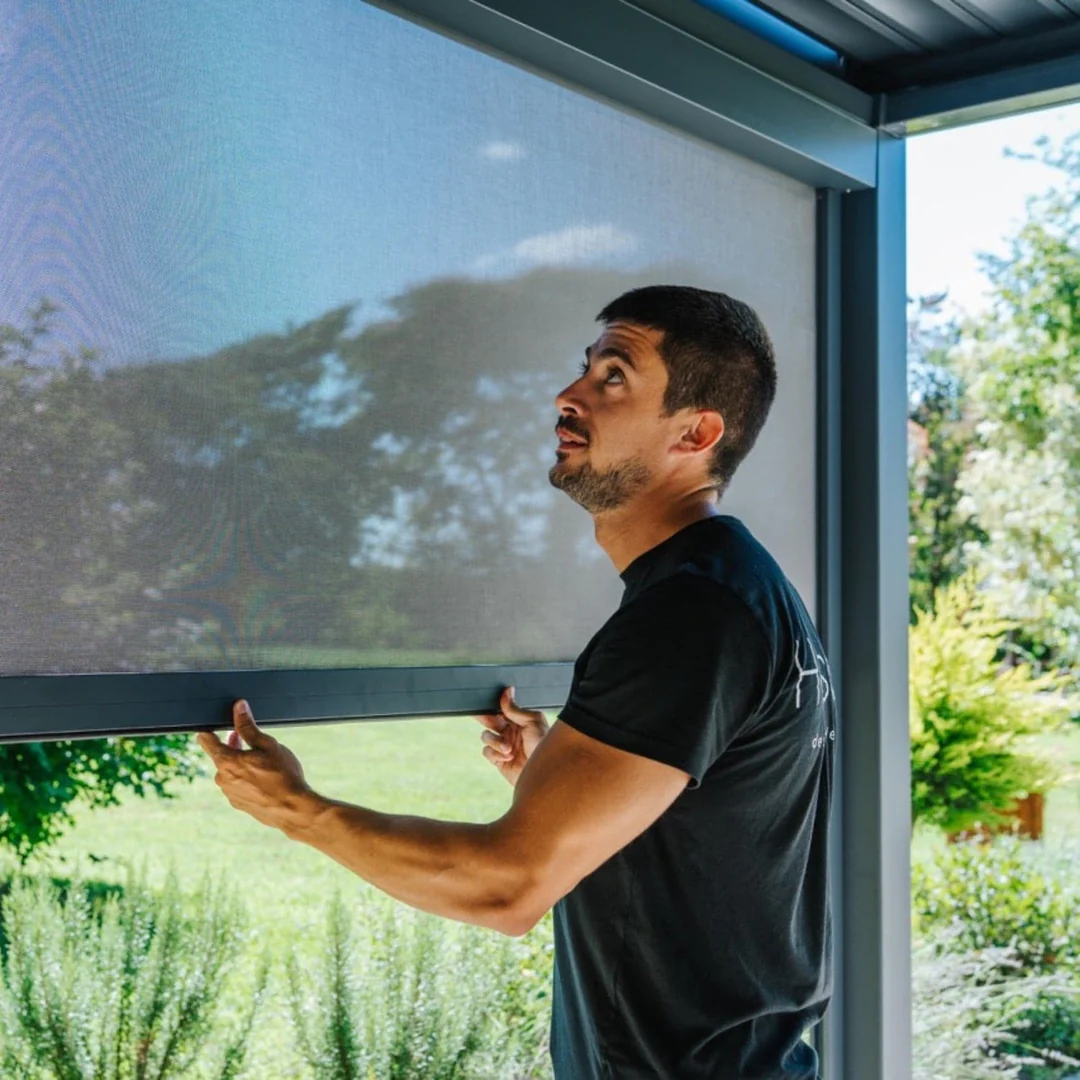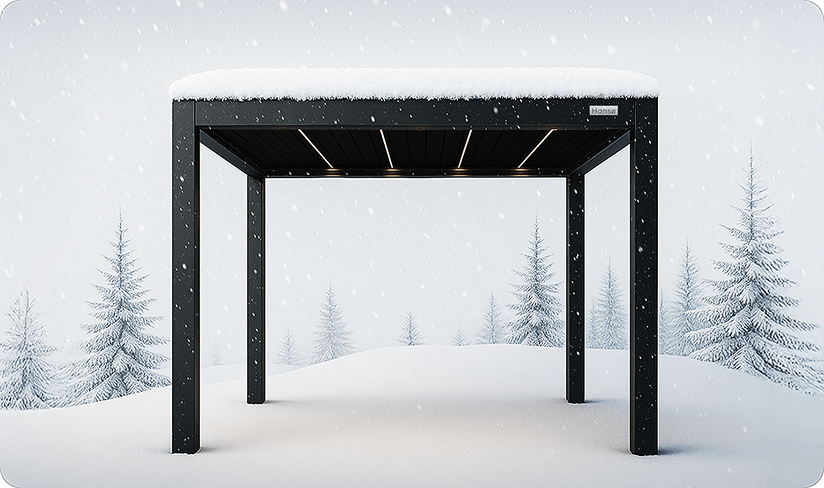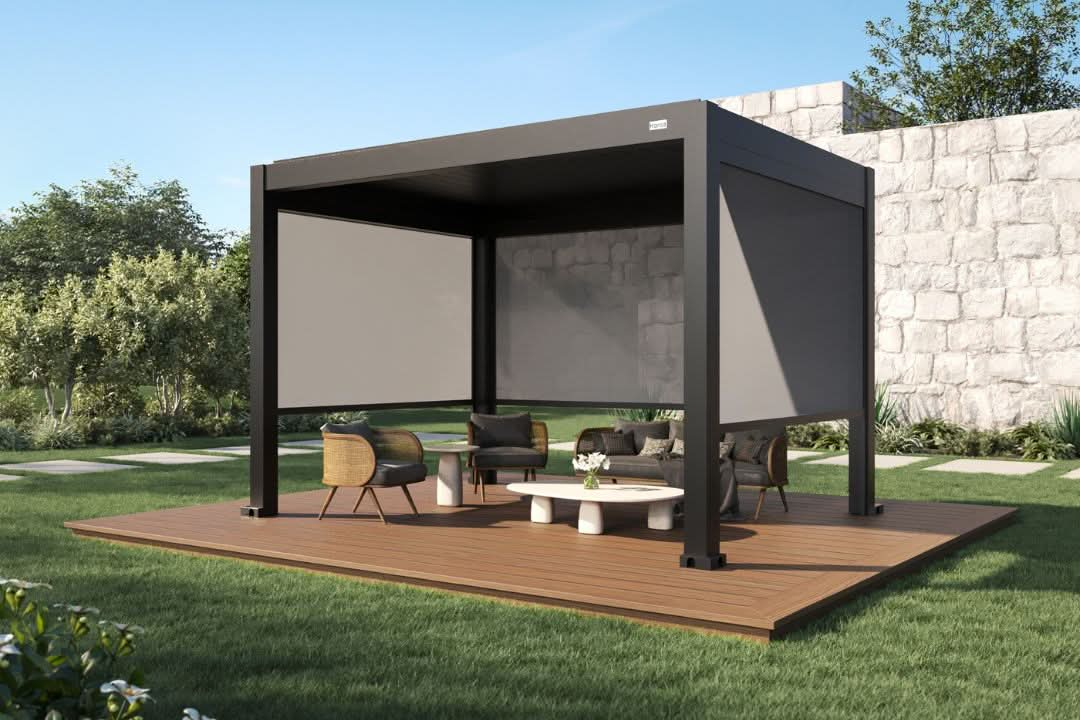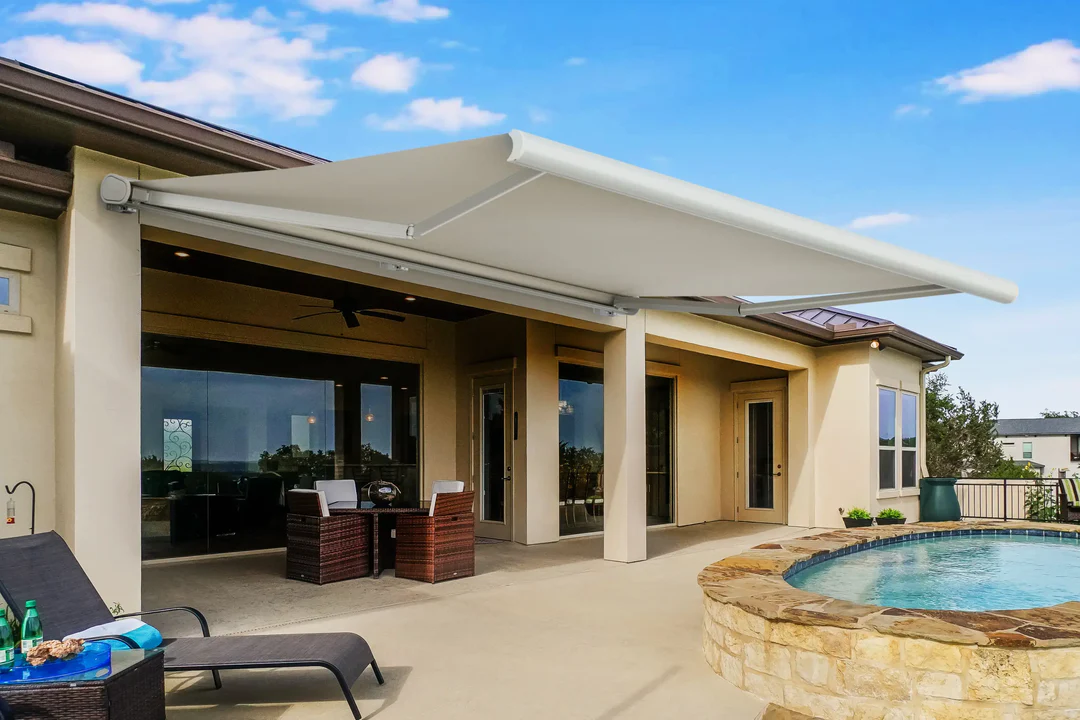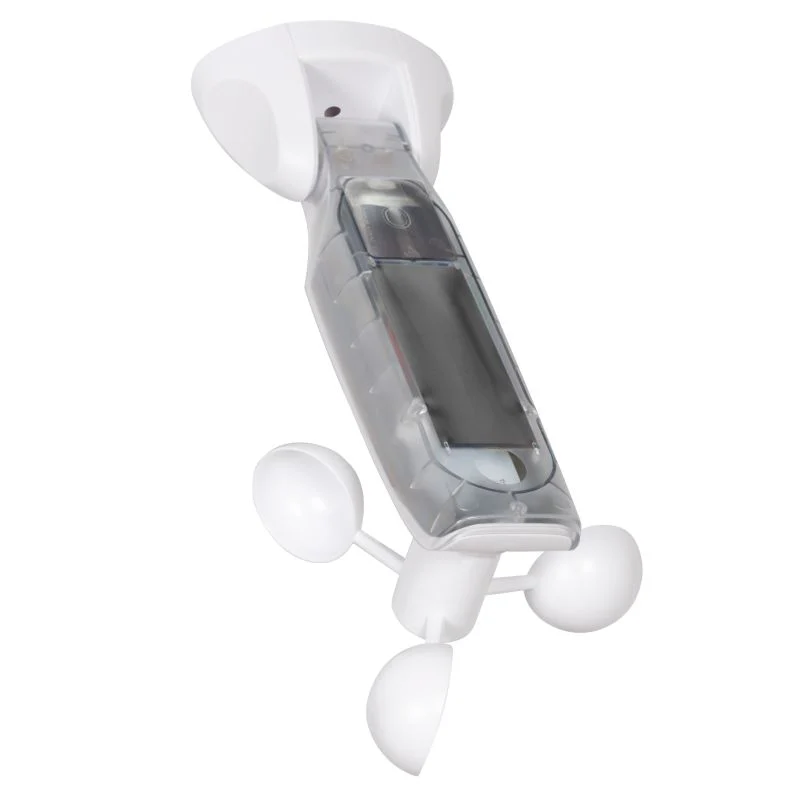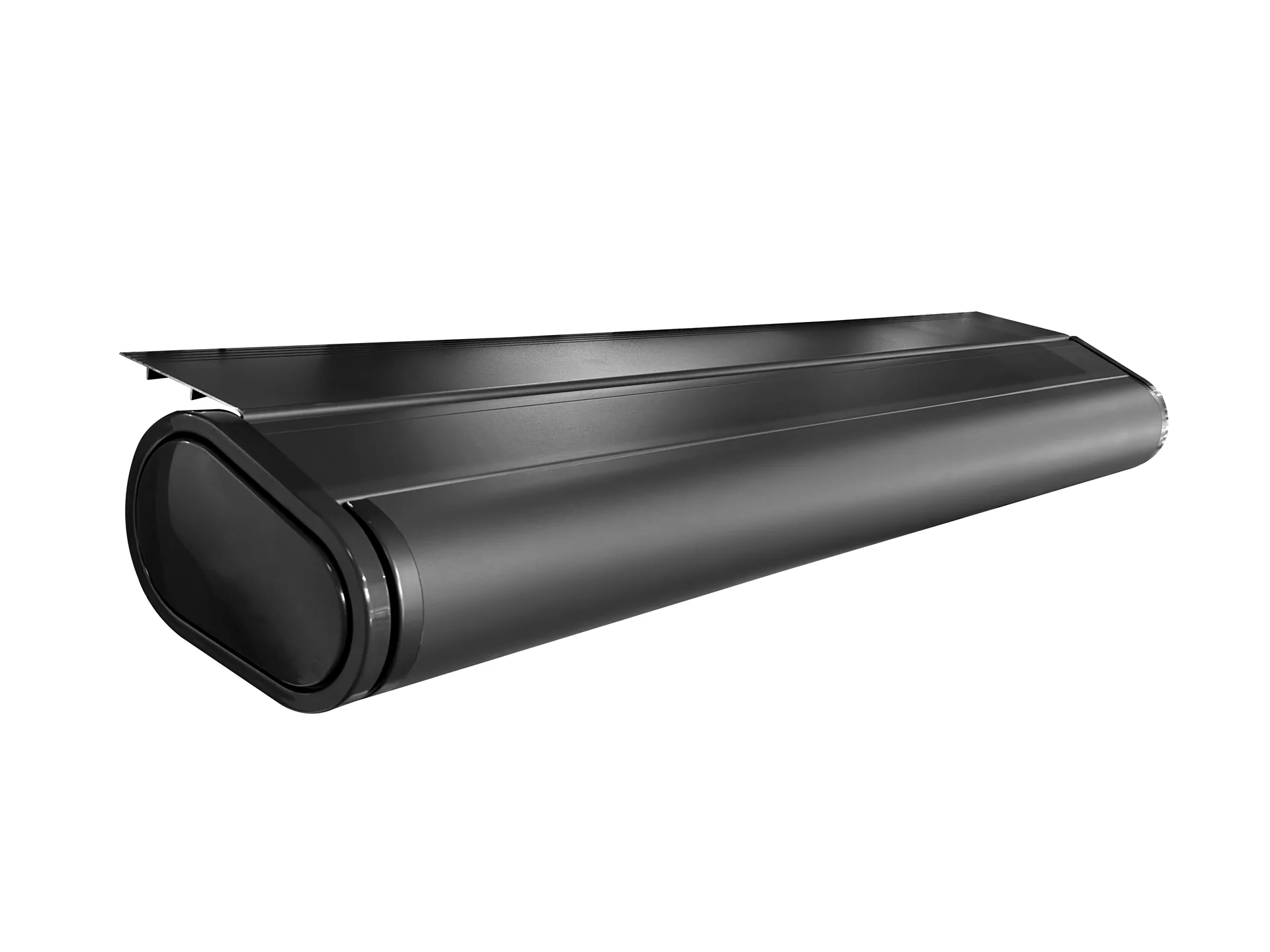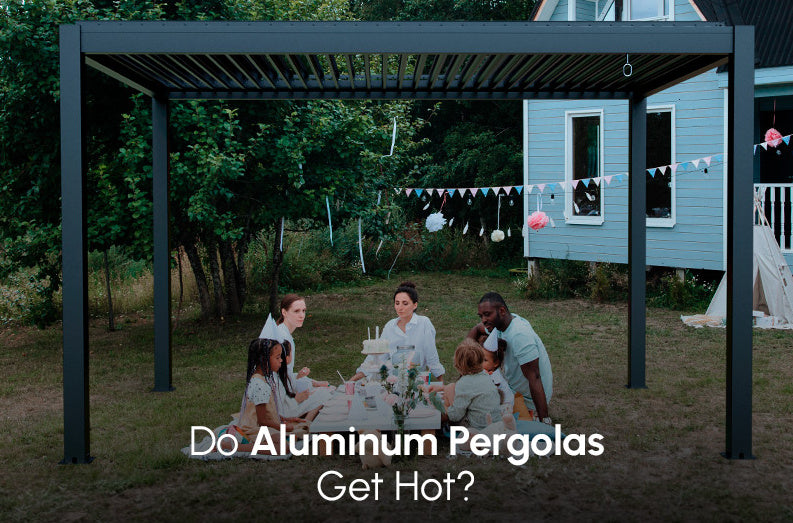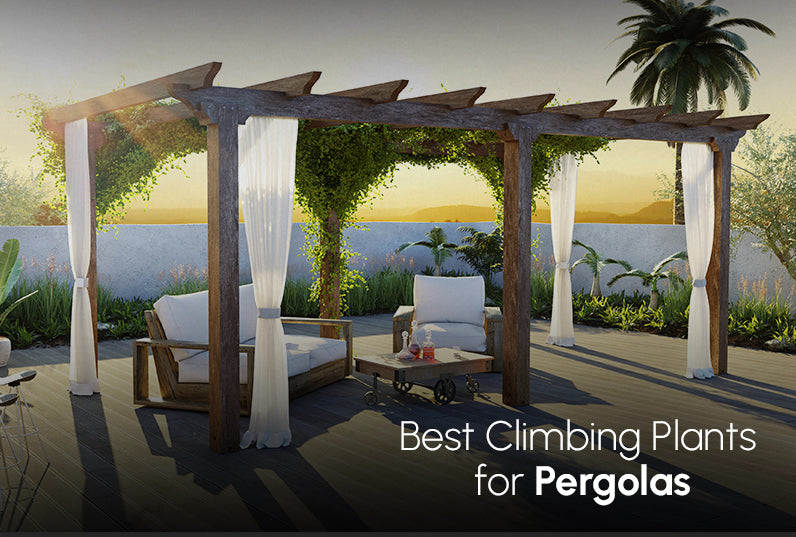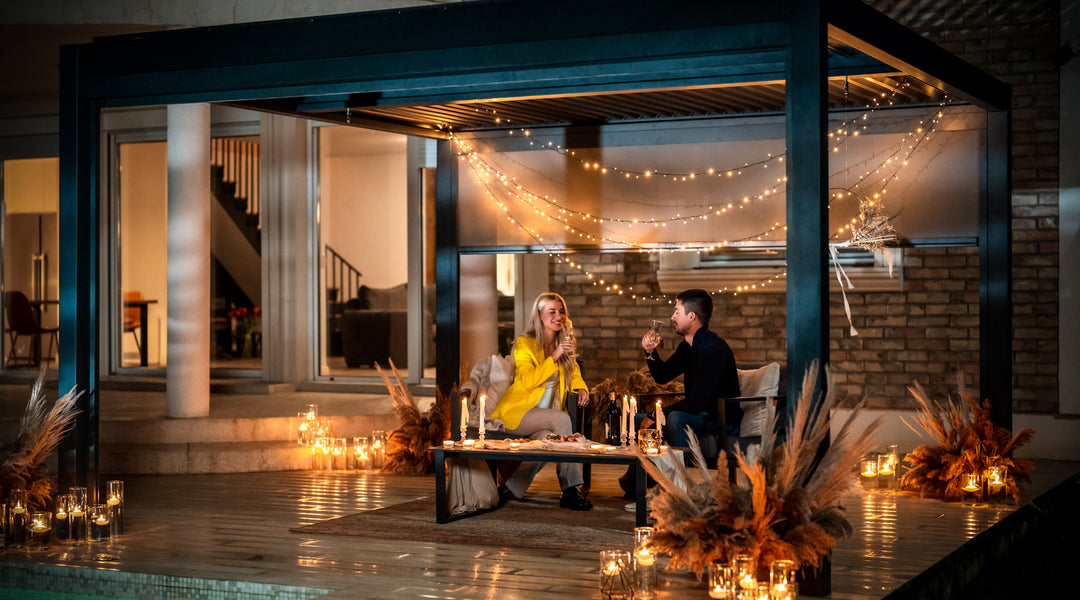What is a Pergola and What Is It Used For?

A pergola is an outdoor structure, often made of wood, vinyl or metal, like aluminum, featuring vertical posts and either an open lattice or a roof. It serves to provide shade, create a decorative space, and some versions with louvered roofs can adjust to control sunlight and rain exposure.
Join us as we start by understanding what a pergola is and how it works. Then we will look at its history and the many benefits it offers.
Finally, we will understand why it is so highly regarded in modern outdoor design.
Where Did Pergola Originate?

The name "pergola" comes from the Latin word "pergula," meaning projecting eave. Like many modern architectural styles, this extension extends beyond the main structure to create a covered passage or seating.
Renaissance Italian gardens had pergolas. They were charming for their function and symbolism.
They seamlessly blended man-made structures with nature, providing a sanctuary that was neither indoors nor outside.
What Defines A Pergola?

The word "pergola" may sound complicated, but the framework is actually very simple and beautiful.
A pergola is a structure that can be found in many backyards and gardens. It is both aesthetically pleasing and useful for any outdoor living place.
Defining the Pergola Structure
A pergola's main parts describe it. Its stability comes from vertical supports firmly placed in the ground.
Cross beams, normally regular, span these posts.
The louvers or beams atop these beams might be dense for shade or loose for direct sunshine.
Depending on the homeowner, this basic structure can support retractable shade umbrellas, climbing plants, or ornaments.
Components Of A Pergola
Vertical Posts: As indicated, vertical posts support a pergola. These wooden or metal posts offer the main support. They determine structural height and sturdiness. The pergola is usually anchored into the ground to withstand the elements.
Cross Beams: Running horizontally atop the vertical posts are the cross beams. These beams, often set in a louvered, crisscross, or checkerboard pattern, create the iconic look that many associate with pergolas.
Not only do they add to the visual appeal, but they also provide a framework for other features like decorations or support for the climbing plants.
Pergola Roofing: While many confuse the cross beams with the roof, the actual roofing grid of a pergola is a bit more intricate. Comprising a series of parallel slats or louvers, they offer varying degrees of shade.
Depending on the spacing, it can provide anything from a light-dappled sun effect to more substantial shade protection.
Needless to say that there are a lot of pergola shade options. Some homeowners even choose to add covered roofs, adjustable louvered roofs, fabric shades, or other materials to control and enhance shade capabilities.
Which pergola roof you will choose - depends on you, because there are many roof ideas and options.
That's what makes the pergola fascinating - because of the many customization opportunities.
Optional Features: Beyond the core components, a pergola can be enhanced with several optional features. From hanging plants to versatile shade solutions like retractable shade canopies and shade screens. The possibilities are nearly endless.
Some even opt for a raised floor or incorporate outdoor furniture to transform the pergola into a full-fledged outdoor living space.
Not an integral part but you can add these features as per your preference or needs.
Advantages and Uses of Having a Pergola

1. Outdoor Recreational Area
Primarily, a pergola exemplifies aesthetic elegance. A carefully thought-out pergola is both a separate feature and one that fits in well with its surroundings, making it the focal point of your garden or backyard.
Whether it's made of rustic wood or sleek aluminum for a contemporary patio, its mere presence can transform an ordinary space into an extraordinary one.
It creates an amazing sitting area where you can have a great time with your family or friends.
2. Shade and Sun Protection
Every outdoor enthusiast knows the value of a perfectly shaded spot, especially on a sun-drenched afternoon.
This is where pergolas as an outdoor structure prove their mettle. With their unique shape, they provide the perfect balance of sunshine and shade, so you can enjoy the outdoors without worrying about getting too much direct sunlight.
Moreover, the advent of a modern pergola has further elevated this experience.
With adjustable louvers, homeowners now have the flexibility to control the amount of sunlight filtering through, making it adaptable to different times of the day and various weather conditions.
So, whether it's the soft morning sun you crave or a complete shade in a scorching sun, with an aluminum louvered pergola kit, you're in command.
3. Support for Climbing Plants
The beauty of nature can't be beat, and a pergola is the perfect place to show it off. Its frame is great for gardeners because it supports a wide range of growing plants securely.
Idea:
You could think about grapevines: they enhance the landscape and enable for personal wine harvesting. These elements work together to make the pergola a beautiful and functional outdoor feature.
4. Integration with Other Outdoor Features
A pergola's strength is not just how nice it looks by itself, but also how well it fits in with other structures.
A pergola is a great addition to any outdoor space, whether it's a large deck that needs a place to relax in the shade or a patio that needs a focal point.
For example, wish you had an outdoor kitchen?
If you put it under a pergola, it goes from being a useful room to a great place to eat outside right away.
Because pergolas are so flexible, they can be added to any outdoor setup to make it look better. They can connect different outdoor features into a single, comfortable sitting area.
5. Space for Decor and Accessories
The open framework of a pergola is perfect for hanging a variety of decor elements.
From lighting ideas that create an evening glow to fans that offer a gentle breeze on warmer days, the customization potential is vast.
By integrating these personal touches, a pergola transitions from a mere outdoor feature to a reflection of your unique style, ensuring that your outdoor space resonates with your personality, warmth and individuality.
6. Carport
It should also be mentioned that nowadays most people invest in a pergola instead of an additional carport.
A pergola is ideal for storing your car.
The advantages are obvious - first of all, your car will not receive direct sunlight, and you will not have to clean frozen windows during the winter period.
7. Ideal Poolside Accessory
One of the most underrated features of a pergola is that it is a great addition to your poolside area.
Ways to use a pergola more than one:
- You can use it for sunbeds
- You can use it for hot tub
- If you have children, you can keep kiddie pool under the pergola
- and way more.
Comparing Other Outdoor Structures With A Pergola

Outdoor spaces have various structures, each with its distinct characteristics and purpose.
Let's compare pergolas with other popular structures to understand their unique offerings and differences.
Pergola vs Trellis
At first glance, a pergola and a trellis might seem similar.
However, while a trellis is primarily a flat framework of lattice or intersecting pieces of wood or bamboo (usually used against a wall or as dividers), a pergola is a larger, attached or free-standing structure.
Pergolas are often larger and define an entire outdoor space, whereas trellises serve more as decorative or partitioning elements.
Pergola vs Garden Arbors
An arbor usually consists of an archway with a lattice on its sides, acting as an entry point to gardens or yards.
Pergolas, on the other hand, are larger structures often used to cover patios or decks, offering a premium shaded area where you could spend your time.
Pergola vs Pagodas
Pagodas have a different origin and stand apart from the rest, deeply rooted in Asian architecture.
These multi-tiered towers, adorned with multiple eaves stacked on one another, serve both religious and ornamental purposes.
Unlike the open structure of a pergola, a pagoda is enclosed, often made of stone or wood, and has significant cultural and historical implications in its design.
While pergolas are about enhancing outdoor living spaces, pagodas are often linked to temples and spiritual sites.
Pergola vs Gazebo
The most significant distinction between a pergola and a gazebo is their design: a pergola boasts an open lattice or louvered roof, primarily for shade, whereas a gazebo has a solid roof and usually enclosed sides for shelter.
For a casual customer, a pergola might be preferable due to its simpler, open design that often integrates seamlessly into gardens and patios, providing versatile shade without the commitment of a more enclosed structure like a gazebo.
What Materials Are Used to Build a Pergola?

Frequently, the attractiveness of a pergola derives from the material used in its construction.
Despite the abundance of available pergola materials, only a few stand out for their durability, aesthetics, and functionality.
Aluminum Pergolas
Aluminum, especially when fashioned into adjustable louvered designs, offers flexibility and elegance.
Lightweight yet sturdy, these pergolas let you control sunlight exposure, ensuring optimal comfort.
Plus, they're resistant to rust, ensuring they remain an enduring feature of your outdoor space.
Wooden Pergolas
A timeless choice, wood brings a natural warmth and rustic charm to any outdoor space.
Common types, like cedar or redwood, are not only visually appealing but also resist rot and pests, ensuring longevity.
It should be mentioned that a wooden pergola requires a lot of maintenance.
Vinyl Pergolas
Vinyl pergolas are durable and virtually maintenance-free outdoor structures, resistant to rot and insects.
However, vinyl pergolas lack of strength, longer lifespan, and resistance to weathering in comparison with aluminum pergolas.
Conclusion
Pergolas, with their elegant design and functional appeal, have become a beloved feature in outdoor spaces worldwide.
Whether you're drawn to the classic charm of wooden pergolas or the modern functionality of aluminum designs, these structures promise to transform any outdoor area.
Investing in a pergola not only enhances the beauty of your outdoor space but also adds value to the property, making it a wise and enduring addition to any home or garden.
We hope that we answered what is a pergola.
